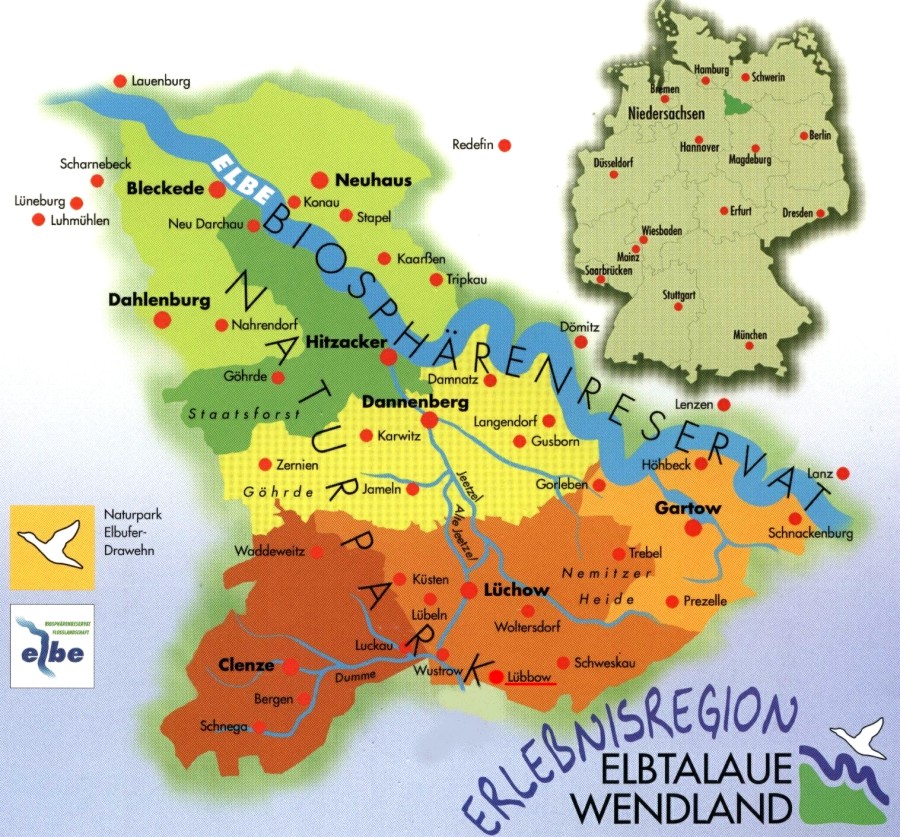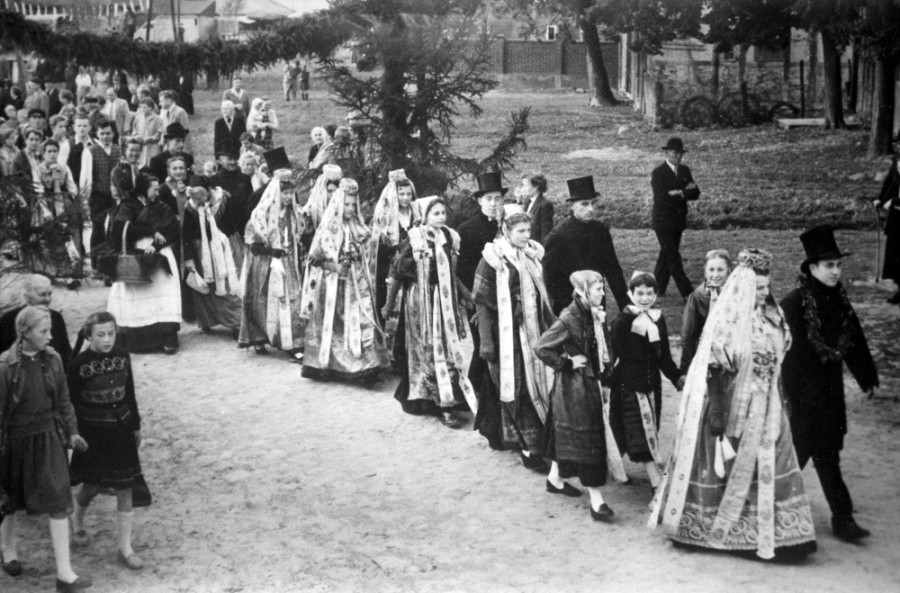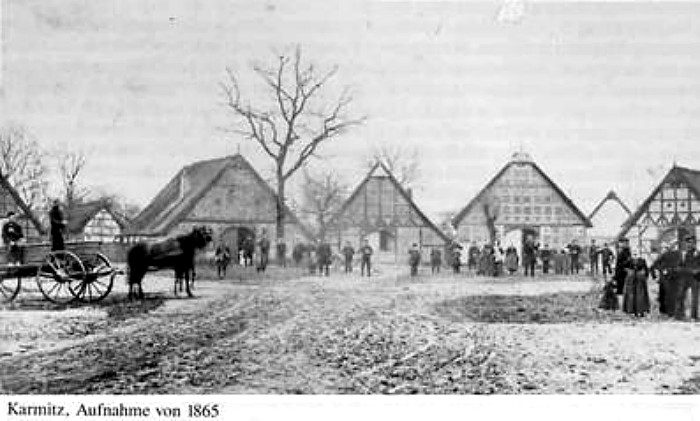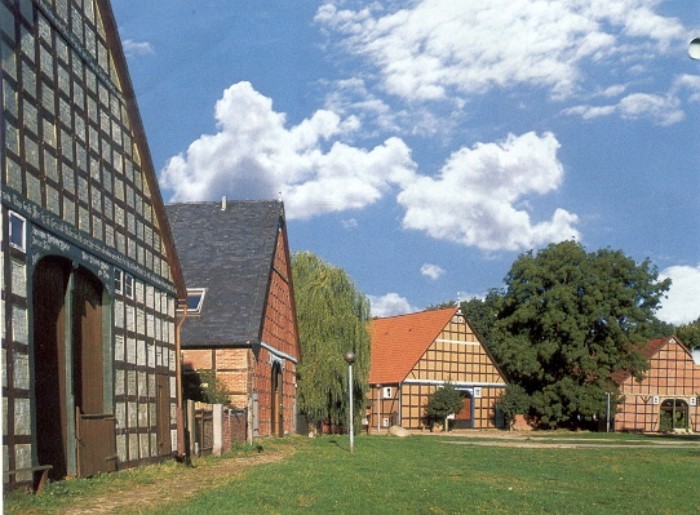Domen
Misico dux Vandalorum
And below is the text of the "Statutes of Lithuania" from 1529 - it is perhaps in Old Belarussian language, I can also understand a lot from it:
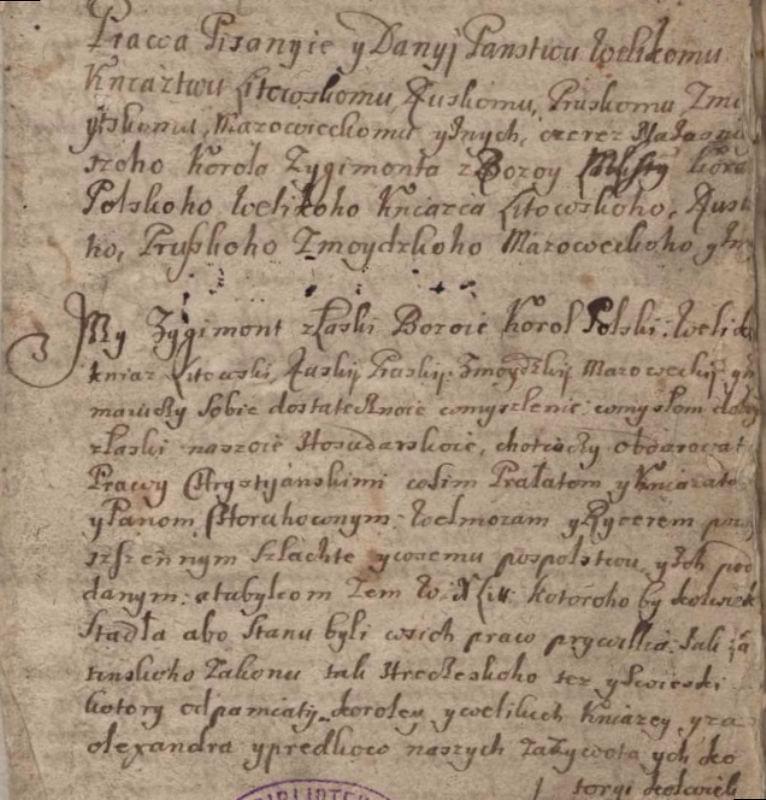
Probably our Russian users would also understand a lot from it, though.
==================================
Edit:
According to English wikipedia, this is "Old Chancery Slavonic" (but maybe this is just another name for "Old Belarussian", who knows):
http://en.wikipedia.org/wiki/Statutes_of_Lithuania
When I clicked the link to "Old Chancery Slavonic", wikipedia article about "Ruthenian language" showed up:
http://en.wikipedia.org/wiki/Ruthenian_language
They are known under the collective name Surzhyk:
http://en.wikipedia.org/wiki/Surzhyk
=============================================
BTW - when it comes to Slavic languages.
Most of scholars assume that early in history - ca. year 400 AD - there was only one Slavic language (perhaps already with several dialects, but all of them very similar to each other). Later, with the expansion of Slavic tribes in all directions, Slavic language diversified and new languages and dialects emerged.
And of course later, as you wrote, national languages became standardized and many regional dialects disappeared, while some of them still exist.
However, most of Slavic languages are still quite similar to each other, even though not mutually intelligible.
==============================================
Among the earliest written "artifcats" of Slavic are those in Glagolitsa (Old Church Slavonic), but also the Freising Manuscript, written in Latin alphabet.
Here one guy attempts to read fragments from the Freising Manuscript loudly (but we can't be sure that his pronunciation is correct):
BTW - the title of the video says "Old Pannonian", but in fact the Freising Manuscript is from the Alpine region of Slavia.
So this is in fact what we can call "Old Slovenian", spoken by Slavic tribes from the area of what is now Slovenia and southern Austria:
Link to video.
But this could as well be the "state language" of the Slavic state of Carantania, so already a very early example of an "elite construct":
http://en.wikipedia.org/wiki/Carantania

Probably our Russian users would also understand a lot from it, though.
==================================
Edit:
According to English wikipedia, this is "Old Chancery Slavonic" (but maybe this is just another name for "Old Belarussian", who knows):
http://en.wikipedia.org/wiki/Statutes_of_Lithuania
When I clicked the link to "Old Chancery Slavonic", wikipedia article about "Ruthenian language" showed up:

http://en.wikipedia.org/wiki/Ruthenian_language
Most actually speak mixed dialects
They are known under the collective name Surzhyk:
http://en.wikipedia.org/wiki/Surzhyk
=============================================
BTW - when it comes to Slavic languages.
Most of scholars assume that early in history - ca. year 400 AD - there was only one Slavic language (perhaps already with several dialects, but all of them very similar to each other). Later, with the expansion of Slavic tribes in all directions, Slavic language diversified and new languages and dialects emerged.
And of course later, as you wrote, national languages became standardized and many regional dialects disappeared, while some of them still exist.
However, most of Slavic languages are still quite similar to each other, even though not mutually intelligible.
==============================================
Among the earliest written "artifcats" of Slavic are those in Glagolitsa (Old Church Slavonic), but also the Freising Manuscript, written in Latin alphabet.
Here one guy attempts to read fragments from the Freising Manuscript loudly (but we can't be sure that his pronunciation is correct):
BTW - the title of the video says "Old Pannonian", but in fact the Freising Manuscript is from the Alpine region of Slavia.
So this is in fact what we can call "Old Slovenian", spoken by Slavic tribes from the area of what is now Slovenia and southern Austria:
Link to video.
But this could as well be the "state language" of the Slavic state of Carantania, so already a very early example of an "elite construct":

http://en.wikipedia.org/wiki/Carantania

 Or something like this.
Or something like this. 


